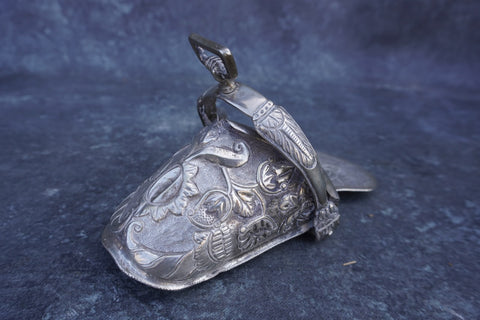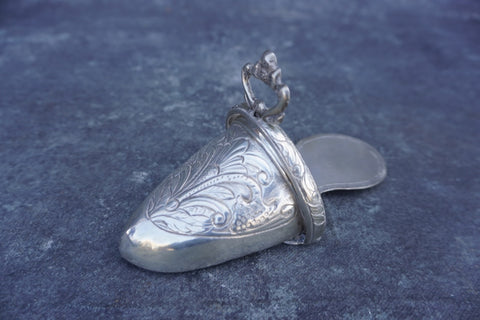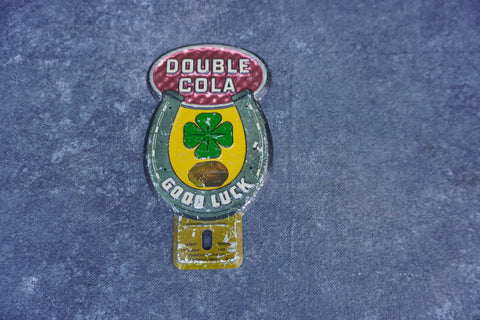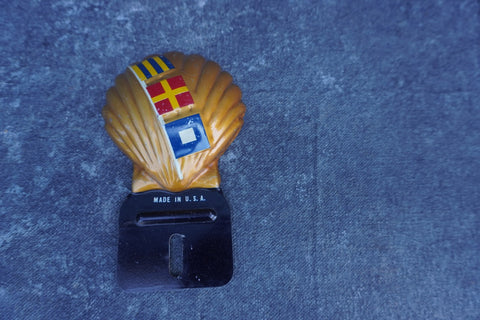Henry Ward Beecher Chromolithograph
19th Century chromolithograph of a photo of Henry Ward Beecher. Photographer name unreadable on label. Nicely framed, 13.75 x 16.75, art is 11 x 14.
Henry Ward Beecher was regarded as the most popular Christian minister in the United States for more than 30 years of his life. From the 1850s to the 1880s, Beecher spoke to large congregations every week. Beecher was able to change the minds of thousands by using the New Testament to show that slavery was wrong. He described himself as “a peace-man, except when I wish to fight.” This could be seen through his theology, “The Doctrine of Love,” and his fiery public crusades.
Beecher was born in Litchfield, Connecticut on June 24, 1818. His father, Lyman Beecher, was considered one of the last great Puritan preachers. Lyman Beecher strongly supported the religious revival and Calvinist theology. Beecher attended Amherst College, beginning in 1830, at the peak of what is now known as the Second Great Awakening. Through his religious studies, Beecher became enrapt in the question of slavery.
In 1837, Beecher married Eunice White Bullard. They moved to Lawrenceburg, Indiana, where Beecher had a job as a minister. Beecher was known for preaching in log cabins and open air tents. While preaching for these large audiences Beecher began to develop his style, it was less fire and brimstone than his father’s. Beecher chose to focus on the unconditional love and forgiveness of Christ. Noticed by several businessmen, Beecher was offered a new Congregational church in Brooklyn Heights, New York. Beecher continued his radical ways by bring flowers into the church, making jokes from the pulpit, and deciding to have the congregation sing hymns instead of hiring a choir.
Beecher took his earlier ideas of promoting love and forgiveness and wrote the “Doctrine of Love.” This doctrine focused on the idea of unconditional love, and it captured the attention of the nation. It was different from the Calvinism most people had been brought up on. Beecher’s church had 2,000 members and its 3,000 seat sanctuary was filled almost every week. This fame allowed Beecher to become a popular columnist and lecture on the national circuit.
Slavery had troubled Beecher for a long time, so beginning in 1850 he began to fight it. Beecher used a variety of ways to show his followers slavery was wrong. He would invite slaves on stage and hold a mock slave auction until enough money was raised for their freedom. In 1856, following the Nebraska-Kansas Act, Beecher raised money to buy rifles to send to Kansas anti-slavery settlers. Beecher adamantly supported the Civil War and encouraged his followers to fight to end slavery. When there was fear Great Britain might support the Confederates, Beecher went across the Atlantic to speak and ensure public support for the North. Beecher was not the only one in his family to speak publicly against slavery. His sister, Harriet Beecher Stowe, wrote Uncle Tom’s Cabin.
Once the Civil War was over, Beecher turned his attention to the woman’s suffrage movement. However, due to a scandal, most of Beecher’s work towards suffrage has been forgotten. Beecher was accused, in 1870, of having an affair with Elizabeth Tilton. His accuser was Victoria Woodhull, who was very active within the suffrage movement. This affair was taken to court, but a verdict could not be reached, so it was declared a mistrial. While Beecher still had his church, his popularity rapidly declined. In 1887, Beecher died of a stroke.











